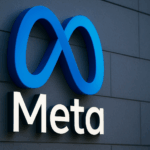Aiming to redefine international financial transactions, Riva Money has attracted significant attention with its recent $3 million pre-seed funding success. The company, focusing on blockchain technology, seeks to revolutionize cross-border money transfers by offering a seamless, cost-effective solution. The financial infusion is expected to fuel Riva’s expansion across key markets in Europe, Asia, and North America. The company intends to leverage this platform to enhance global financial connectivity, making it a subject of interest for contemporary financial sectors.
Riva Money, established earlier this year, is not only expanding its operational reach but also pushing for crucial regulatory advances. Unlike traditional fund transfer methods, Riva uniquely combines blockchain and classic payment systems to optimize both speed and expense. This novel integration aims to tackle inefficiencies typically experienced with traditional banking systems. Historical challenges in international transactions often included unfavorable exchange rates and lengthy processing times which businesses have eagerly sought to resolve.
What Fundraising Aims to Achieve?
The fresh investment is set to accelerate Riva’s entry into significant global regions. The funds will primarily enhance its operational capabilities and bolster its engineering workforce. Strengthening their team is crucial for the deployment and maintenance of this advanced financial technology on a worldwide scale. Riva’s co-founder and CEO, Niklas Hoejman, underscored the company’s mission by saying,
“By combining blockchain technology with a robust regulatory framework, we’re building a solution that offers businesses the speed, transparency and cost-efficiency they need to thrive in today’s interconnected economy.”
How Is Riva Gaining Traction?
Partner and managing director at Project A, Malin Posern, highlighted the strategic significance of the funding, noting an evolving landscape in financial services. Regulatory measures are adapting as stablecoin usage grows, paving the way for innovations like Riva’s. Posern remarked,
“Riva’s dual-rail system for businesses elegantly solves for both speed and flexibility in a market that’s still reliant on legacy processes.”
For Riva, obtaining necessary certifications across various regions, such as a Markets in Crypto-Assets license in the EU, is a step towards solidifying its operational base.
In previous discussions about the evolution of global payments, the context was often centered around the increasing demand for real-time, transparent financial solutions. As technology advanced, the call for enhanced infrastructure became more pronounced, particularly with the rise of blockchain technology. This funding round fits into the broader narrative of financial innovation aimed at meeting modern business demands.
Riva’s platform has emerged as an adaptable solution for global money transfers, facilitating secure transactions via blockchain-based stability or traditional fiat methods. The approach ensures customer needs are addressed based on locale and other specific factors. As the company focuses on reducing cross-border transaction barriers, the industry may witness a shift in how financial transfers are perceived and handled globally.
Looking ahead, Riva’s distinctive payment routing method, blending tradition with innovation, positions it as a competitor in the financial tech arena. Acquiring the requisite regulatory licenses remains a priority to ensure sustained growth and compliance across diverse economic jurisdictions. As these efforts culminate, the financial sector will likely see a redefined standard in cross-border payments, characterized by increased efficiency and reduced costs.










